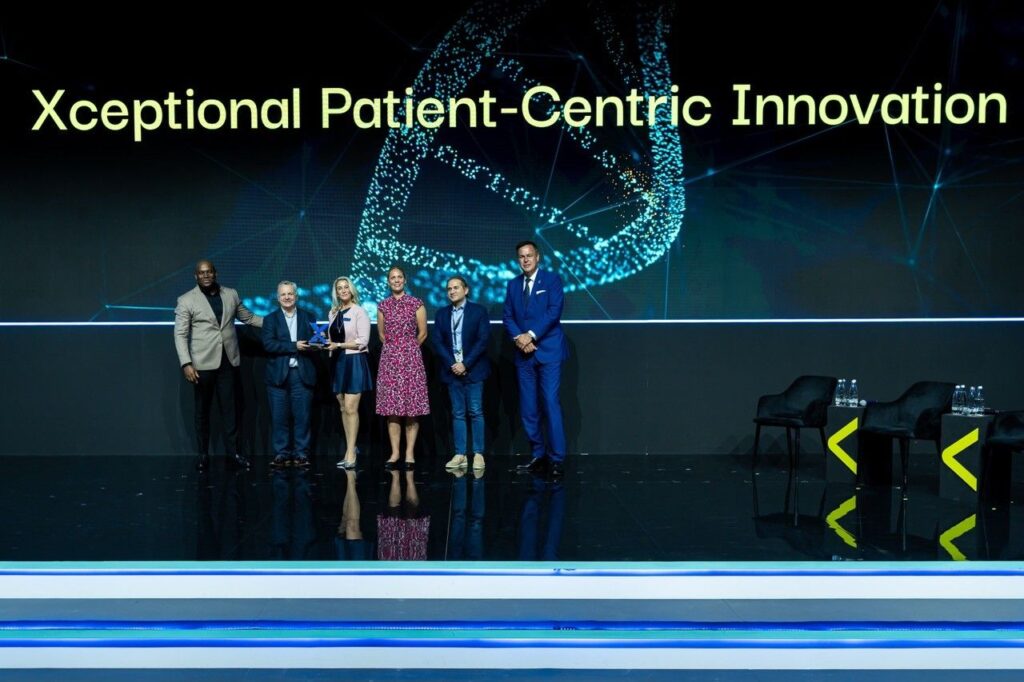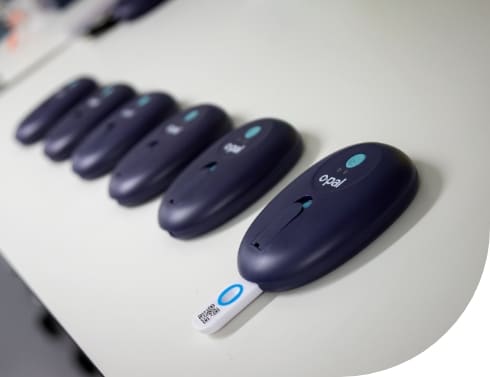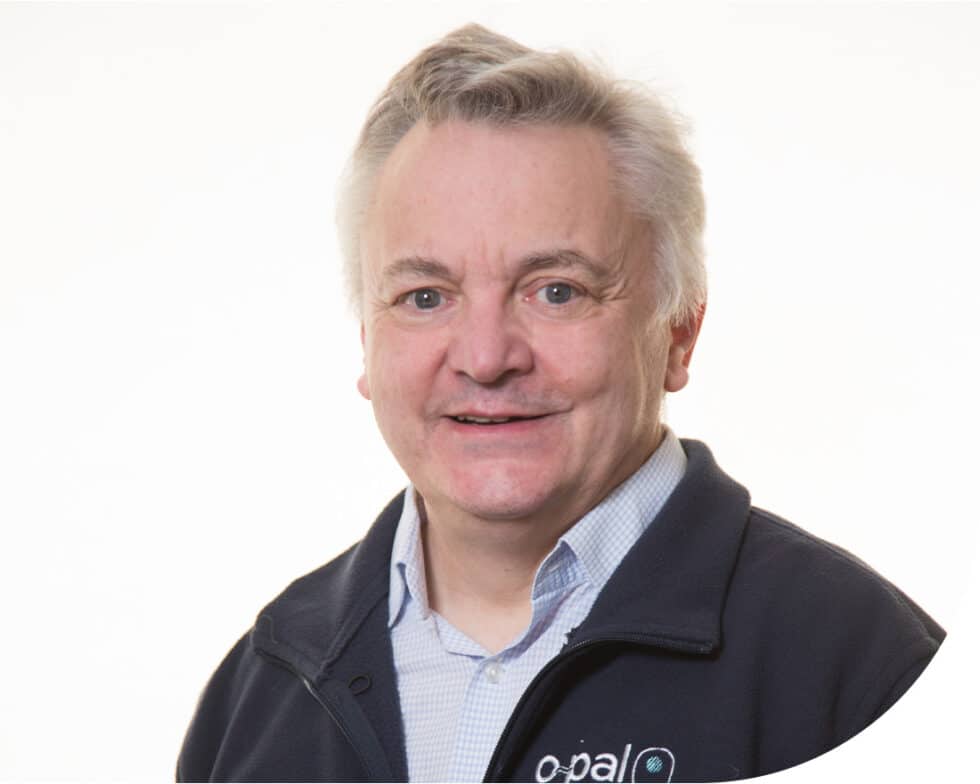In this month’s Trailblazer Spotlight, our new feature on innovation insights, we sat down with Paul Ko Ferrigno, CEO at éclateral, a health tech start-up based here at Future Space, to celebrate their recent international award win at WHX Tech.

The company’s flagship product, o~pal, has captured attention across the health tech space – including at WHX Tech, where they won the Xceptional Patient-Centric Innovation Award. éclateral is on a mission to give everyone control over their health and wellness through low-cost, clinical-grade diagnostic tests at home. The team’s approach is as innovative as it is empathetic, putting users – especially those often overlooked – at the very heart of their technology.
Innovation inspired by real people
For éclateral, the award isn’t just a trophy on a shelf. “It’s a recognition that we’ve taken the right approach,” explains Paul. The inspiration behind o~pal is rooted in empathy: campaigns by the Royal National Institute for Blind People revealed the daily challenges faced by visually impaired users when interacting with health diagnostics.
Stories of real women who couldn’t read her own pregnancy test after a one-night stand, and those struggling to conceive without being able to read a pregnancy test, revealed a simple truth: health tests must be designed with the user in mind, not just for them.
What makes o~pal stand out
Every element of éclateral’s product – from directional and tactile features to audible feedback – is built to serve the user first. Paul shares that the judges were particularly interested in the story behind the product as well as its design philosophy. “o~pal as a product is organic, soft and approachable – that’s what we wanted our device to feel like … Winning the Patient-Centric Innovation Award was a huge validation of that approach.”
A critical breakthrough in this journey towards user-centric design came when the team decided to target care homes rather than NHS procurement. “When COVID hit, we adapted the platform to tackle another problem,” explains Paul. Lateral flow tests were going unreported at alarming rates, skewing public health data. By connecting the test digitally, every result – positive or negative – could be captured, offering a new level of insight for disease monitoring.
This pivot avoided the lengthy “Valley of Death” in NHS product adoption, allowing them to test the product with real users – like residents with arthritis – and validate usability while avoiding years of delays. The combination of technical tractability, user-centred design and strategic market targeting is what sets o~pal apart.

The bigger vision for éclateral goes beyond awards: they want an o~pal reader in every home. Achieving that requires carefully chosen gateways into people’s lives. First, they see women as key decision-makers, accounting for 86% of healthcare purchasing in households. Second, the care home sector provides a testing ground for real-world deployment in domestic-like settings. This dual strategy allows éclateral to refine the product in environments that mirror the home, ironing out practical issues while ensuring accessibility for a broad range of users.
Winning the WHX Tech award has amplified éclateral’s visibility, and the next 12-18 months are focused on momentum. “Investment is key so we can take the product to market, complete regulatory approval, and launch. Simultaneously, we’ll begin developing a suite of women’s health tests, addressing a market that’s been underserved for decades,” Paul explains.
Empowering people, one test at a time
Beyond launching products, éclateral is embracing a broader shift in healthcare: moving diagnostics from hospital to home, and from treatment to prevention. Analog tests like the lateral flow are now digital and quantifiable, giving users unprecedented control over their health. The team is equally inspired by national initiatives such as the NHS 10-Year Health Plan for England and the Life Sciences Sector Plan, which both emphasise community-based care, prevention and SME support. “We’re ready to launch our tests, but regulatory support and data collection remain critical. It’s challenging – but also incredibly exciting – to be at the forefront of this change.”
For éclateral, the vision is clear: diagnostics should be accessible, usable and empowering for everyone. With o~pal, they’re not just innovating technology – they’re transforming the way people interact with their own health, making patient-centric, preventive care a reality in homes everywhere.

